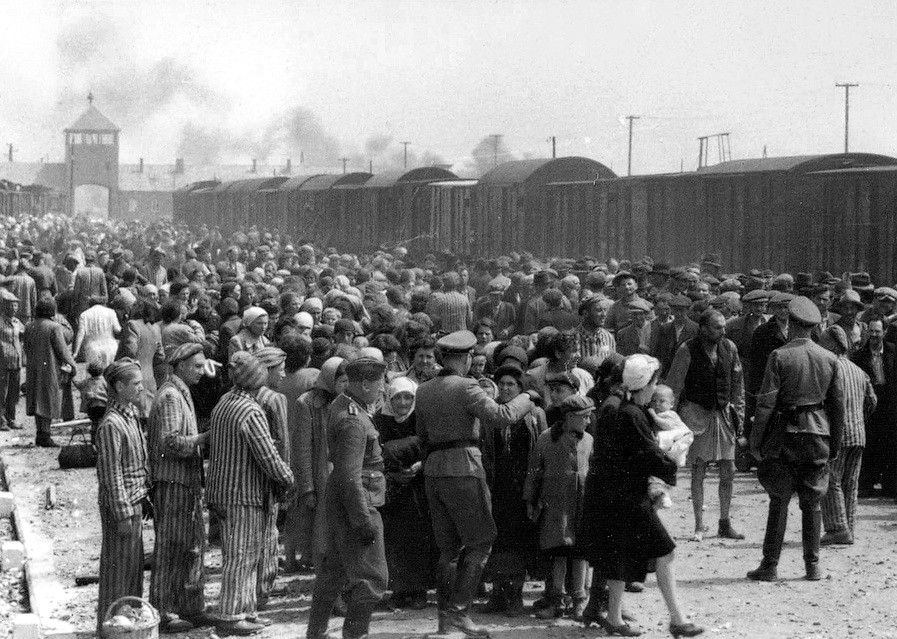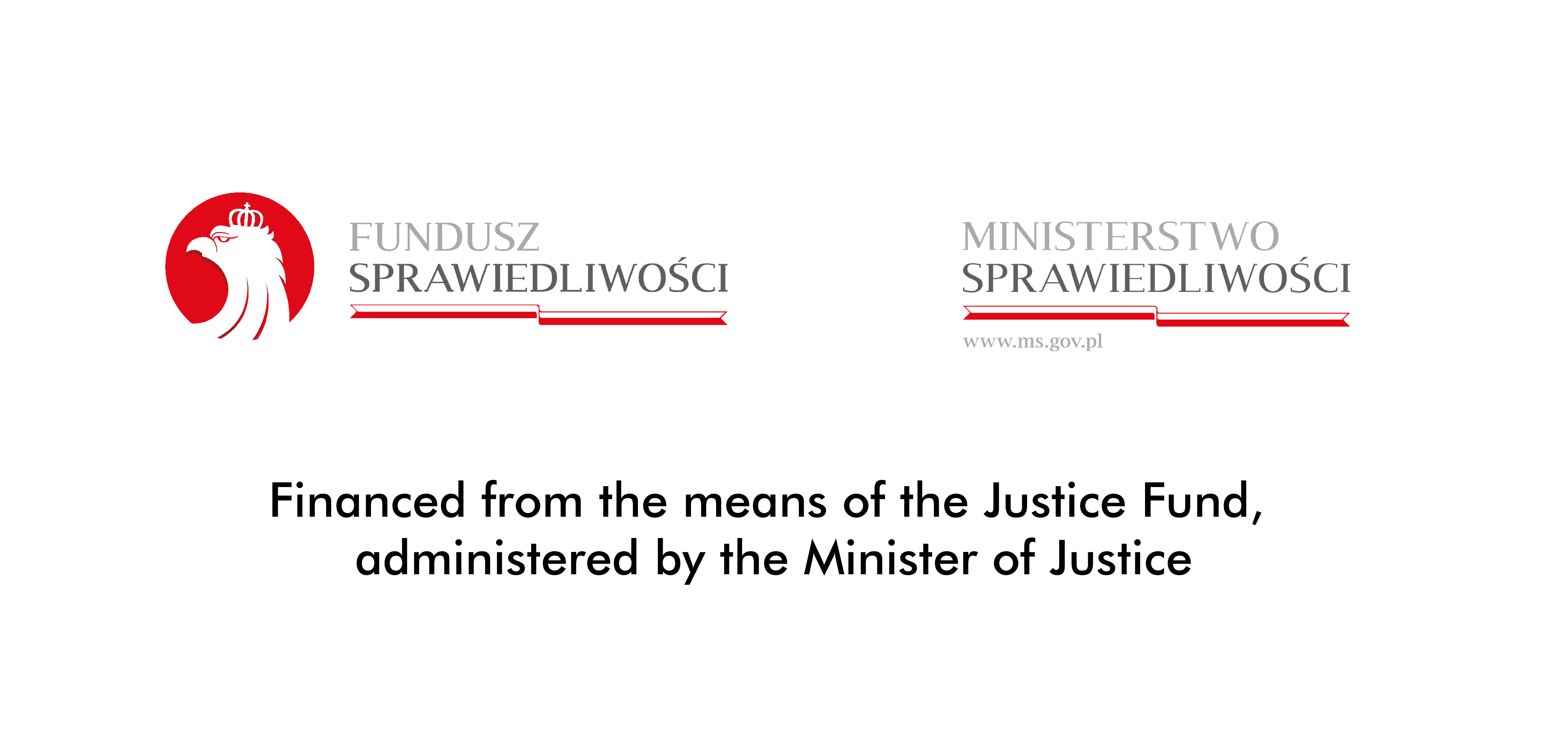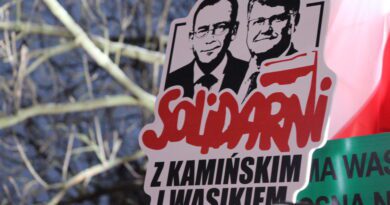Karol Tendera: Guardian of historical truth

In 1943 he was deported to the German concentration camp Auschwitz, where he was active in the resistance movement. Toward the end of his life, he became a symbol of the struggle for historical truth. Karol Tendera’s life is a movie script waiting to be put on the big screen.
Zuzanna Dąbrowska
He quickly understood what the “German order” was. In the spring of 1940, Karol Tendera, along with other students from the Kraków Mechanical School, was deported for forced labor. He ended up at the Hanover-based Max Mueller-Hann Flugzeug Werke factory, which manufactured airplanes. As he recounted years later in an interview with Radom TV, the factory was regularly bombed by the Allies. He knew that one day he might be killed, and in mid-1942 he attempted to escape. The escapade was unsuccessful. He was detained in Opole and sent to forced labor at the train station in Wroclaw. He did not give up and once again escaped – this time successfully. He returned to his family home in Kraków.
The peace did not last long. In January 1943, Tendera, who was under 22-years-old at the time, was arrested on the street by a Gestapo officer in civilian clothes. During a brutal interrogation at the headquarters of the secret police on Pomorska Street, he was accused of forging documents. – They immediately brought a priest into the interrogation room. One of the Gestapo men said: “Gentlemen, you know each other”. I replied, truthfully, that this was the first time I had seen him – Karol Tendera recalled years later. He became a scapegoat – the investigation was not related to his escape from forced labor, but concerned effecting the priest’s conviction. Karol was forced by the Gestapo men to testify against the priest, which – despite being beaten on the head – he refused to agree to. The desperate Germans’ aggression finally resulted in injury and Karol Tendera lost his hearing in one ear.
He was taken to a prison on Montelupich Street. On February 5th, 1943, he was sent to Auschwitz. He was given the camp number 100,430 – I did not believe that work would make me free. I felt that these were my last days – Karol Tendera recounted, describing his thoughts during his first days in the death camp.
As a prisoner, he experienced firsthand the brutality used by the German torturers. Pseudo-medical experiments were carried out on him. – I was one of the “guinea pigs”. One day we were led out of the block. Along with 14 other prisoners, we were ordered to undress. They injected something into our left buttocks. Formula 1031, manufactured by Bayer. For a few days, the doctors watched us closely. After three days, three of us died. The rest had 40 degrees of fever. Thanks to the fact that there were those among us who had contacts with Jews, we managed to smuggle the medicine – Tendera recalled. He, however, survived. – I have a good memory and a lot of luck – laughed the former Auschwitz prisoner years later. He was transferred to Birkenau. He worked in various roles – including building barracks and digging fish ponds. During this time, he became seriously ill. He was transferred back to Auschwitz, where he was able to recover from illness.
Tender managed to get an assignment to work in the Auschwitz kitchen, which was an attractive job for the prisoners. This happened thanks to connections – the head of the kitchen commando had played in the same music band with Karol’s father before the war. Around this time, he became active in the camp resistance movement, created by Witold Pilecki. His role was to prepare packages for escapees.

In October 1944, in a “death march”, he reached the Leitmeritz concentration camp. The Polish Institute for National Remembrance estimates that a total of about 18,000 prisoners passed through there, among them 9,000 Poles, largely arrested in connection with the outbreak of the Warsaw Uprising, brought in transports from Auschwitz, Gross-Rosen, Dachau and Flossenbürg. There he worked in a commando managing a clothing warehouse. In Litomierzyce he lived to see the end of the war. During this time he avoided the death penalty for attempting to escape. After the liberation of the camp, he returned to Cracow. He graduated from a construction technical school and took a job at a construction company, then worked at a power company. After another job change, he graduated from the Faculty of Metallurgy at the AGH University of Science and Technology. Until his retirement in 1979, he was director of a large construction company.
The experience of the German camps is forever embedded in Karol Tendera’s memory.
He has worked with the Auschwitz-Birkenau Victims Memorial Foundation and the Center for Dialogue and Prayer in Oswiecim. He is the author of the book “Polacy i Żydzi w KL Auschwitz 1940–1945” (“Poles and Jews at Auschwitz 1940-1945”). Until his old age, he met with schoolchildren, to whom he told about his experiences. He was a true witness to history and a man who could not pass by its falsification with indifference. That’s why in the last years of his life he brought a lawsuit against German TV station ZDF. The case concerned the use of the term “Polish extermination camps Majdanek and Auschwitz” in a 2013 description published on the ZDF portal regarding the planned broadcast of a documentary. – I have been to three camps and in all of them it was the Germans, not the Poles, who were hanging, beating, torturing, and burning. We must not allow for such justifications that it was “a mistake” to stand, I won’t accept it and I don’t agree with it – Tendera said firmly at the beginning of the trial.
In December 2016, the Court of Appeals in Krakow ruled that the phrase “Polish camps” was not only a historical lie, but also a violation of Karol Tendera’s personal rights. It ordered ZDF television to post an apology on the homepage of its website.
– The Polish public is aware that the terms attributing the creation of Auschwitz to Poland are untrue and outrageous. In fact, this is one of the few consensuses in our society, even if there are individuals who are indifferent to it or who even cynically try to exploit it. Sometimes for their own personal purposes, and sometimes for the sake of the interests of other countries or communities. Nevertheless, Poles do not need to be made aware that it was the German state that created a system of extermination camps during the war for the extreme exploitation and extermination of the Jewish population, as well as the liquidation of other nationalities, including the Polish” – Karol Tendera’s attorney, Lech Obara, president of the Patria Nostra Association, tells “Do Rzeczy”.
The German broadcaster did not want to face the consequences. In order to circumvent the Cracow court’s order, the ZDF station only published a link titled, “Apology to Karol Tendera” and a small text in the form of an image at the bottom of the page. This was perceived by the former Auschwitz prisoner as a slap in the face. In January 2017, Karol Tendera’s attorneys asked a court in Mainz to rule that ZDF must fully comply with the judgement. The court granted the request, but ZDF’s lawyers appealed the decision to the Koblenz Higher Regional Court. Thus, in a decision dated January 11th, 2018, the Koblenz Higher Regional Court finally dismissed ZDF TV’s appeal against the order of the Mainz Regional Court, ruling that the judgment of the Court of Appeals in Krakow was enforceable in Germany. The station, however, did not fold. It filed a complaint with the Federal Court of Justice in Karlsruhe.
– The Court (the equivalent of Poland’s Supreme Court) ruled that the judgment of the Court of Appeals in Krakow, ordering ZDF to apologize to Mr. Karol Tendera, could not be enforced in Germany. The German judges took the absurd view that the ruling ordering the publication of an apology is an impermissible interference with ZDF’s press freedoms, and the enforcement of the Polish judgment is blatantly contrary to the fundamental principles of the German legal system. In this way, the German FTS has de facto refused to apply the EU rules mandating the recognition of Polish judgments within the EU – attorney Szymon Topa, member of Karol Tendera’s legal team, explains.
The Patria Nostra Association has filed a complaint with the European Commission, demanding the initiation of proceedings against Germany for violating EU law. – A petition was also filed with the European Parliament’s Committee on Petitions and Committee on Legal Affairs. None of the relevant EU bodies wanted to address the issue, believing, in the simplest terms, that German judges can decide for themselves when to apply an EU rule. This sort of peculiar German rule of law is one that Commissioner Věra Jourova doesn’t mind – ironicizes Counsel Topa. – The Federal Court of Justice’s ruling has been appealed to the German Constitutional Court. Unfortunately, since Mr. Karol Tendera died before his complaint was recognized, the German judges took advantage of this and decided they no longer needed to deal with the case – he added. The former Auschwitz-Birkenau prisoner died in 2019.
Deputy Justice Minister Marcin Romanowski commented on this in an interview with “Do Rzeczy”: “The death of Mr. Tendera resulted in the discontinuation of proceedings. Let us also recall the very essence of the judgment of the Federal Constitutional Court (FCC) in Karlsruhe, which ruled that the judgment could not be enforced in Germany due to the fact that there is a constitutionally protected freedom of speech, and this precludes ordering the specific content of the apology. That is to say, once again using crooks and looking for pretexts at all costs to avoid admitting that German concentration camps operated on Polish territory and that the Germans are responsible for these crimes”.
– The case of Karol Tendera shows how rights guaranteed by the Rome Convention, in this case by the Federal Constitutional Court in Karlsruhe, can be caricatured. German judges exercising judicial oversight over subordinate courts of general jurisdiction did not allow a judgment issued by the Polish Court of Appeals in Krakow to be enforced within Germany, ordering the German public television station ZDF to apologize to a former Auschwitz prisoner on its website for publishing statements attributing the creation of that death camp to Poles. The curiosity of the verdict concerned the fact that, according to the German Court, the refusal to enforce the Polish verdict was based on the need to protect the freedom of speech (sic!) of German ZDF television, according to attorney Lech Obara.
Could the Polish side have done more? – The fact that the head of the European Commission, of German provenance, does not want to deal with the problem, although this cannot be considered correct, can be understood. What is not understandable, however, is why the Polish government does not use the possibility of filing a complaint with the CJEU against the German state, accusing it of violating EU law. An intervention on this issue was filed by Law and Justice MP Iwona Arent. The legitimacy of such an action was confirmed by the Minister of Justice, who sent a letter to the Chancellery of the Prime Minister on the matter. The Chancellery, on the other hand, remains silent and passive. Poland’s passivity in this regard will only encourage the German authorities to take further similar actions – warns Counselor Obara.

At the same time, there are fields in which the Polish authorities have learned lessons and are acting effectively. – Diplomacy remains vigilant at the IHRA (International Holocaust Remembrance Alliance) and rightly seeks, always on the occasion of denouncing the distortion of Holocaust memory, to draw attention to the need to counter statements attributing the creation of death camps such as Auschwitz to other nations. It was thanks to Polish diplomats that the IHRA recognized as an example of distortion of Holocaust memory the attribution to other nations or ethnic groups of the construction and operation of death camps such as Auschwitz. The recent UN General Assembly resolution of January 22nd, 2022 on Holocaust denial was similarly framed. In addition, the Polish foreign ministry has inspired scholars to debate the dangers of spreading faulty memory codes and the legal options for countering this. This resulted in academic and journalistic publications in various languages – Counselor Obara points out.
Karol Tendera’s mission is being continued by his son, Jerzy. Last June, he filed a complaint against Germany at the European Court of Human Rights in Strasbourg. In it, he pointed out that the refusal to implement the Polish judgment violates, among other things, the provision of Article 10 of the European Convention on Human Rights. – He filed a complaint against the ruling of German judges, hoping that European judges will not refuse to consider his father’s rationale and address the German Court’s alleged violations of the European Convention on Human Rights. The case is still at the stage of formal evaluation –attorney Szymon Topa of the Patria Nostra Association explains. The complaint also includes an accusation against the Federal Republic of Germany concerning the failure to meet the standards for the right to a court, guaranteed by Article 6 of the Convention. In addition, according to Karol Tendera’s son, there was a violation of his father’s right to respect for private and family life, which German judges were also obliged to protect under Article 8 of the Convention.
Deputy Justice Minister Marcin Romanowski assessed that there is no other way to fight against the attribution of German crimes to the Polish nation, but to raise the alarm and respond firmly every time such a situation takes place. – In the case of the ZDF station, it was only the court case and the long-running battle that had the effect. Despite the sour attitude, denial of the content of the verdicts, and their undermining in every possible way, ZDF no longer used the phrase “Polish camps” on air. “The Wall Street Journal” has banned the use of the term “Polish camps” as a reference to German camps on Polish territory. This phrase now appears significantly less frequently in the pages of this newspaper, although every now and then another incident occurs, forcing the Polish side to react. Thanks to the actions of such institutions as the Pilecki Institute of the American Polish community and foundations operating in Poland and abroad, the emergence of these “mistakes” is gradually being reduced. However, a mistake is one thing, and a deliberate act is another – the deputy head of the Ministry of Foreign Affairs stressed.
The case of Karol Tendera showed the extent of ignorance and often ill-will of the Western world regarding who was the executioner and who was the victim during World War II.
– The trial coincided with other events affecting the formation of public consciousness. In 2013, the series “Our Mothers, Our Fathers” premiered, in the creation of which the German public television station ZDF had a hand. The series, although it aspired to be a historical film, deviated significantly from the reality of the times presented. It reproduced all sorts of untrue stereotypes about Poland, falsified the memory of Polish partisans and completely ignored Germany’s participation in the occupation of Poland and the crimes committed against Polish citizens – recalls attorney Szymon Topa. – The historical vision presented in the German series has opened the Polish public’s eye to something they may not have realized before: what seemed obvious in Poland about World War II is not at all obvious or known to the societies of other European countries. Little did it realize that the German state had engaged in shaping a false narrative about World War II and the role of Poles in that conflict. The information bubble in which we lived, convinced that the West knew perfectly well who were the perpetrators and who were the victims of that war, burst – Karol Tendera’s attorney stresses.
– Poles realized that they should not be passive. This naturally aroused interest in how our history is perceived in the world and how it can be told according to the Polish narrative – attorney Szymon Topa concludes.
This article was published in September 2022 in “Do Rzeczy” magazine.




